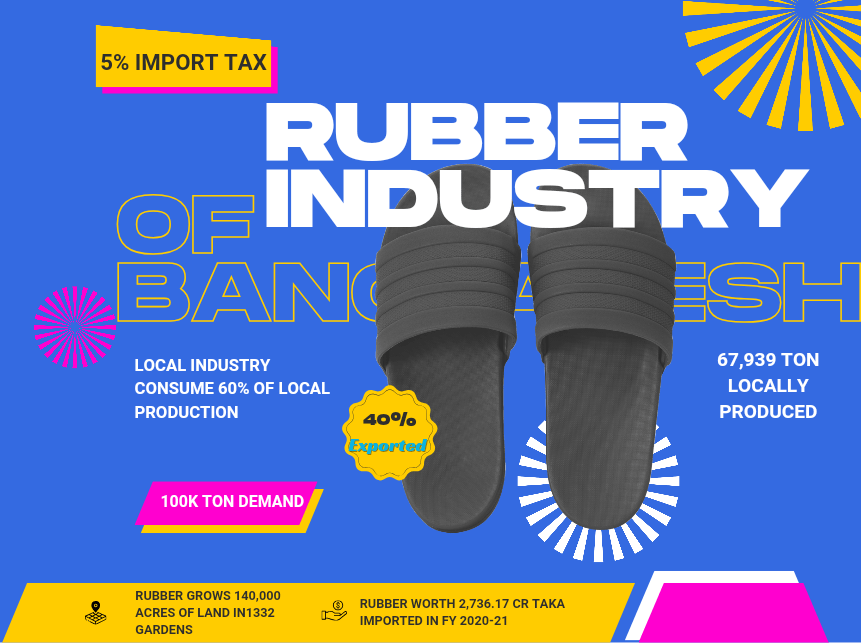Rubber Industry has emerged as a growing sector in Bangladesh following the massive rubber plantation in the eastern and north-eastern hilly regions. Rubber cultivation in Bangladesh started in the 1980s. Since then, numerous public and private rubber plantations have sprung up on about 60,000 acres of land.
According to the Bangladesh Rubber Development Corporation, natural rubber is made by processing a milky liquid or latex that is extracted from the cuttings of the rubber plant. Farmers sometimes call it “white gold”. There are 19 state-owned rubber plantations in Bangladesh, of which nine are in Chittagong, five in Tangail and Mymensingh and four in Sylhet.
The country’s annual demand for rubber is about 30,000 tons, of which 18,000 to 20,000 tons are locally produced.
Being a primary industrial input for many businesses, rubber plays a substantial role in deciding the profitability of the following industries: Automobile, Tire, Footwear, Clothing, Utility (cables, gloves, foams, adhesives, balloons, etc.)
According to BFIDC, in 2012, Bangladesh produced 24,000 tons of rubber, out of which 60 percent (worth BDT 334 crore) was consumed by the local market, and the rest 9600 tons were exported for a sum of BDT 220 crore.

According to the Export Promotion Bureau (EPB), from July 2013 to January 2014, the rubber export revenue was USD 10.06 million, whereas the expected figures were USD 5.71 million.
Not only that, the Rubber industry has been playing a vital role in creating additional employment opportunities for rural people. As per industry experts, as many as ten people are employed in every 25 acres of rubber land.
According to the Food and Agriculture Organization of the United Nations (FAO), 150,000 acres of land will need to be brought under cultivation by 2020 to meet the growing global demand for rubber. With the goal of producing 0.1 million metric tons of rubber by 2020 and reaching 0.2 million metric tons by 2050, Bangladesh is now looking for a suitable infrastructure to steer itself towards its desired direction of becoming a major supplier to meet this huge global demand.
If more private and public sector investment in this sector, this sector will be more profitable & successful in near future.
Best expo organizer in Bangladesh Eco Expo, also doing work for contributing in this success.

